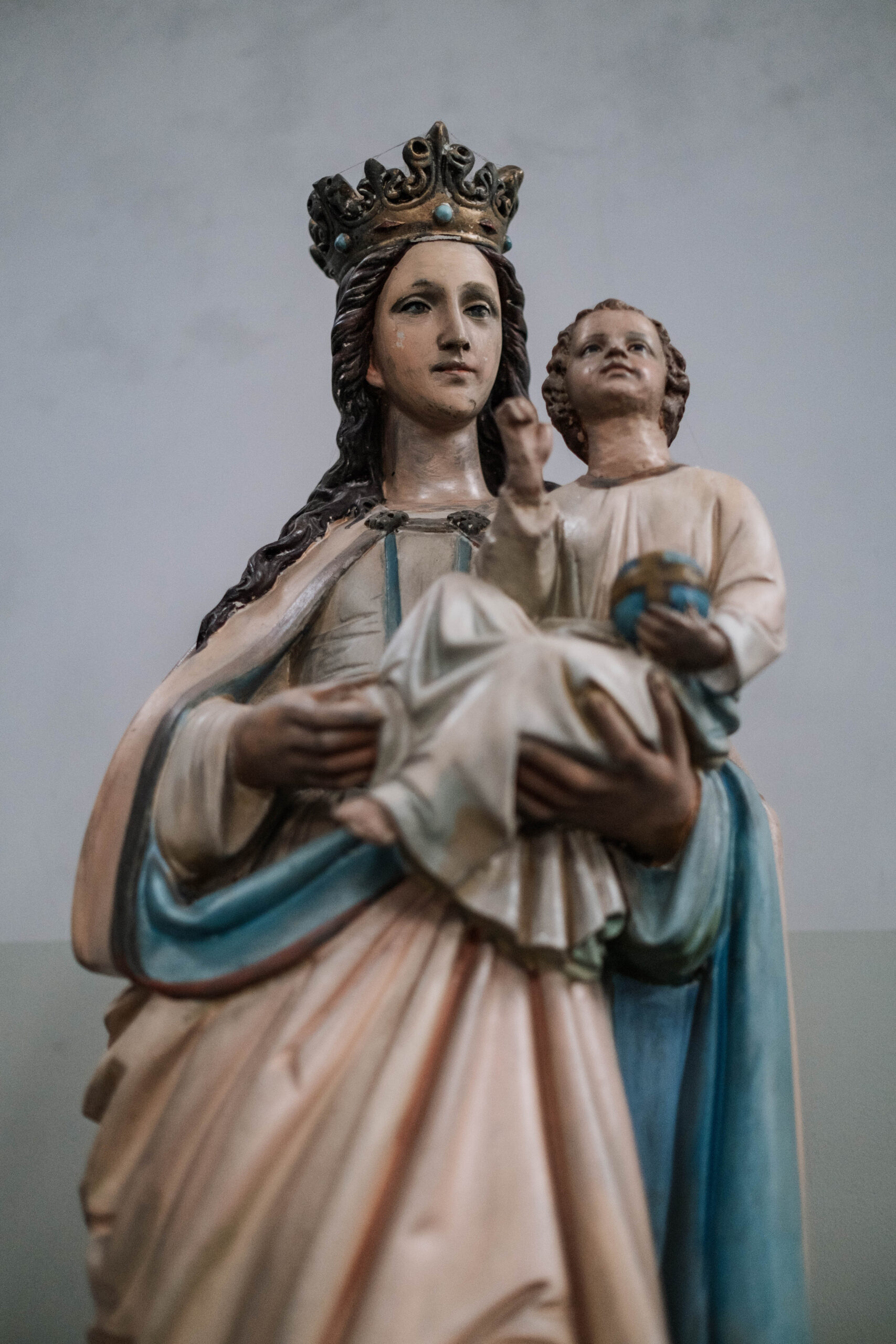In this article, we will explore the fascinating parable of the Ten Virgins, as told in Matthew 25:1-13. This story holds valuable lessons about preparedness for the Kingdom, offering insights that are relevant to our lives today. Through the symbolism of the ten virgins and their lamps, we can gain a deeper understanding of what it means to be ready for the opportunities and challenges that come our way. Ready to embark on this enlightening journey? Let’s dive in!

Lesson 1: Importance of Preparation
Understanding the parable
In the parable of the ten virgins, Jesus tells a story about ten young women who were awaiting the arrival of a bridegroom. Five of these virgins were described as wise, while the other five were referred to as foolish. The story is meant to convey a deeper spiritual truth about the importance of preparedness for the coming of the kingdom of heaven.
Exploring the symbolism of the ten virgins
The ten virgins in this parable symbolize individuals who are awaiting the return of Jesus, the bridegroom. They represent individuals within the Christian community who have professed belief in Christ and are eagerly awaiting his second coming. The distinction between the wise and foolish virgins highlights the importance of being spiritually prepared for this event.
The significance of the kingdom of heaven
The kingdom of heaven refers to the eternal reign of God and his righteousness. It represents the ultimate goal and destination for believers, where they will experience perfect communion with God and eternal joy. The parable emphasizes the need to be prepared for the kingdom by living in accordance with God’s teachings and being faithful to him.
Emphasizing the need for preparedness
The parable of the ten virgins underscores the importance of being prepared for the coming of the kingdom of heaven. Just as the virgins needed to have enough oil for their lamps to last through the night, believers must have a strong foundation of faith and righteousness to endure the trials and challenges of life. This requires cultivating a deep relationship with God, seeking his guidance, and living a life of obedience to his commands.
Lesson 2: Foolishness of Unpreparedness
Analyzing the actions of the foolish virgins
The foolish virgins in the parable were unprepared for the arrival of the bridegroom. They did not bring enough oil for their lamps and were caught off guard when he finally came. Their lack of preparation is highlighted by their request to borrow oil from the wise virgins, who rightly refused. This demonstrates their poor judgment and negligence in failing to adequately prepare for the anticipated event.
Consequences of being unprepared
The consequences of the foolish virgins’ unpreparedness were dire. When they went to buy more oil, the bridegroom arrived and the door to the wedding feast was closed. Despite their pleading, the bridegroom declared that he did not know them and refused them entry. This emphasizes the sobering reality that being unprepared for the coming of the kingdom of heaven will result in being excluded from the eternal blessings and communion with God that await the faithful.
Relevance of the parable in our lives today
The parable of the ten virgins carries great relevance in our lives today. It serves as a reminder that we must not become complacent or negligent in our spiritual journey. We are called to constantly be on guard and be prepared for the return of Christ. Just as the foolish virgins missed out on the wedding feast, being unprepared for the kingdom of heaven will have eternal consequences. Therefore, we must take our faith seriously, prioritize our relationship with God, and diligently prepare ourselves for his coming.
Lesson 3: Wise Virgins’ Example
Examining the behavior of the wise virgins
In contrast to the foolish virgins, the wise virgins were prepared for the arrival of the bridegroom. They brought not only their lamps but also extra oil to ensure they would not run out. Their preparedness is evident in their ability to enter the wedding feast when the bridegroom arrived. The wise virgins exemplify the importance of readiness and foresight in our spiritual lives.
Qualities displayed by the wise virgins
The wise virgins displayed qualities that were instrumental in their preparedness. They were prudent, recognizing the need to have surplus oil in case of any delays. They demonstrated responsibility by not succumbing to the requests of the foolish virgins to share their oil. The wise virgins showcased their wisdom by recognizing the importance of personal preparedness and the impossibility of sharing it with others.
Lessons we can learn from their preparedness
The preparedness of the wise virgins serves as a powerful lesson for believers. It reminds us of the importance of cultivating qualities such as prudence, responsibility, and wisdom in our spiritual lives. We should strive to be attentive and ready, continually seeking a deeper understanding of God’s word and his will for our lives. By doing so, we can be better equipped to meet the challenges and uncertainties that come our way and be prepared for the coming of the kingdom of heaven.
Lesson 4: The Lamp and the Oil
Symbolism of the lamp and the oil
The lamp in the parable represents our faith and our readiness to shine the light of Christ in the world. It symbolizes our connection to God and our commitment to live according to his teachings. The oil, on the other hand, represents the spiritual sustenance and vitality necessary to keep our lamps burning. It signifies the depth of our relationship with God and the consistent devotion required to maintain it.
Understanding the importance of spiritual sustenance
The parable emphasizes the importance of having an abundant supply of oil for our lamps. This signifies the necessity of nurturing our faith through spiritual sustenance. Just as oil fuels a lamp, our relationship with God requires continuous nourishment. This can be achieved through regular prayer, reading Scripture, participating in worship and fellowship, and seeking guidance from the Holy Spirit.
Nurturing our faith through consistent devotion
To ensure that our lamps remain lit and our faith vibrant, we must prioritize consistent devotion to God. This involves setting aside dedicated time for prayer, studying the Bible, and engaging in acts of worship. By doing so, we can cultivate a deeper relationship with God, strengthen our faith, and be better prepared for the challenges and temptations that may come our way.

Lesson 5: Keeping Watch
Interpreting the concept of ‘keeping watch’
The concept of ‘keeping watch’ in the parable of the ten virgins refers to the need for believers to be vigilant and alert in their spiritual lives. It entails being aware of the signs of the times and recognizing the presence of God in our midst. Keeping watch involves staying attuned to God’s guidance, obediently following his commands, and discerning the movements of the Holy Spirit.
Being vigilant in our spiritual lives
Being vigilant in our spiritual lives means being attentive to the ways in which God is working around us. It requires a constant awareness of God’s presence and a willingness to respond to his promptings. By remaining watchful, we can guard against the distractions and temptations that may threaten our faith and readiness for the kingdom of heaven.
Recognizing the signs of the times
Keeping watch also involves being aware of the signs that indicate the coming of the kingdom of heaven. These signs can be found in the world around us, in the events unfolding in society, and in the promptings of the Holy Spirit within us. Through prayer, study of Scripture, and a discerning heart, we can gain insight into the signs of the times and adjust our lives and priorities accordingly.
Avoiding complacency and apathy
One of the key lessons from the parable of the ten virgins is the danger of complacency and apathy in our spiritual lives. If we become lax in our devotion and fail to keep watch, we risk losing sight of what truly matters. By remaining vigilant, we can guard against complacency, stay focused on our relationship with God, and ensure we are ready for the bridegroom’s return.
Lesson 6: The Delay of the Bridegroom
Exploring the purpose behind the delay
The delay of the bridegroom’s arrival in the parable can be seen as a test of the virgins’ preparedness and their ability to endure. It serves to reveal their true character and their level of readiness. The delay also emphasizes the need for patience and endurance in our own spiritual lives, as we wait for the promised return of Christ.
Patience and endurance while waiting
The delay of the bridegroom’s arrival teaches us the importance of patience and endurance in our spiritual journey. Just as the wise virgins waited patiently without losing hope, we too must endure through seasons of waiting, trusting in God’s timing. It is during these times that our faith is refined, our character is strengthened, and our readiness for the kingdom of heaven is tested.
Trusting in God’s timing
The delay of the bridegroom underscores the need to trust in God’s perfect timing. Although we may desire immediate answers or relief from our waiting, God’s wisdom and sovereignty are beyond our understanding. By placing our trust in him, we can find peace and assurance during times of delay. We can rest in the knowledge that God is faithful and will fulfill his promises in his own time and in his own way.

Lesson 7: Seeking and Knocking
The importance of seeking and striving
The parable of the ten virgins reminds us of the significance of seeking and striving in our spiritual lives. Just as the wise virgins took initiative and diligently prepared themselves, we too must actively pursue righteousness, seeking a deeper relationship with God, and striving to live according to his will. We are called to constantly seek God’s guidance and wisdom, never growing complacent or stagnant in our faith.
Persistence in pursuing righteousness
Seeking and knocking require persistence and determination. We must remain steadfast in our pursuit of righteousness, even when faced with challenges and obstacles. Just as the wise virgins did not give up in their preparedness, we too must persevere, trusting in God’s faithfulness and relying on his strength to overcome the difficulties we encounter along the way.
Seeking the Lord’s guidance and wisdom
The parable emphasizes the importance of seeking the Lord’s guidance and wisdom in our lives. As we navigate the challenges and decisions we face, we are called to seek God’s will through prayer and meditation on his Word. By seeking his guidance, we can ensure that our actions and choices align with his purposes, leading us closer to the kingdom of heaven.
Taking action rather than passivity
Seeking and knocking require action on our part. It involves actively engaging with God, surrendering our will to his, and taking steps towards growth and transformation. This contrasts with passivity and complacency, where we become stagnant and fail to pursue our relationship with God. By taking action, we demonstrate our commitment to faith and readiness for the coming of the Lord.
Lesson 8: A Closed Door
Consequences of not being prepared
The closed door in the parable represents the consequences of not being adequately prepared. When the foolish virgins returned from buying more oil, they found that the door to the wedding feast had been shut. This symbolizes the missed opportunity and exclusion from the blessings and joy of the kingdom of heaven. It serves as a sobering reminder of the importance of readiness and the consequences of unpreparedness.
Regret and missed opportunities
The closed door in the parable elicits feelings of regret and the realization of missed opportunities. The foolish virgins deeply regretted their lack of preparedness and pleaded for entry to the wedding feast. However, their regrets were in vain, as the bridegroom declared that he did not know them. This highlights the irreversible nature of missed opportunities and the lasting impact of unpreparedness for the kingdom.
Learning from the closed door
The closed door serves as a powerful lesson for believers. It reminds us that the time to prepare for the coming of the kingdom of heaven is now, for once the door is closed, it is too late. We must heed the parable’s warning and prioritize our relationship with God, nurturing our faith and living in accordance with his teachings. By learning from the closed door, we can ensure that we are ready for the ultimate meeting with the Lord.
Lesson 9: The Virgins’ Request
Understanding the significance of the virgins’ request
When the foolish virgins realized they had run out of oil, they turned to the wise virgins and requested to borrow some. The significance of this request lies in the impossibility of sharing spiritual preparedness. Just as the wise virgins rightly refused the request, we too must recognize the personal nature of spiritual readiness. It is a responsibility that each individual must take for themselves.
The impossibility of sharing spiritual preparedness
The refusal of the wise virgins to share their oil highlights the impossibility of sharing spiritual preparedness with others. While we can encourage and support one another in our faith journeys, each person’s readiness for the kingdom of heaven is a personal responsibility. We cannot rely on the faith or spiritual vitality of others to gain entry into the joy and blessings of the eternal kingdom.
Personal accountability and responsibility
The virgins’ request serves as a reminder of the personal accountability and responsibility we have in our spiritual lives. We cannot depend on the faith of others or expect to coast on their preparedness. Each individual is responsible for their own relationship with God and their readiness for his coming. It is our duty to cultivate a deep, personal connection with him and to continually seek growth and transformation.
Lesson 10: Being Ready
How to cultivate a lifestyle of readiness
Cultivating a lifestyle of readiness requires intentional effort and dedication. It involves prioritizing our relationship with God, living a life of obedience to his commands, and staying connected to him through prayer and the study of his Word. By making our faith a central part of our lives and actively seeking to align ourselves with God’s purposes, we can develop a readiness that permeates every aspect of who we are.
Living every day as if the Bridegroom could come
Being ready means living every day as if the Bridegroom could come at any moment. It requires a constant awareness of our identity as believers, a commitment to holiness, and a willingness to surrender our lives to God’s will. By living in this expectation and with a sense of urgency, we guard against complacency and ensure that we are continually prepared for the coming of the Lord.
Prioritizing our relationship with God
Preparing for the ultimate meeting with the Lord necessitates prioritizing our relationship with God above all else. We must seek first his kingdom and his righteousness, placing him at the center of our lives. This involves spending quality time in his presence, growing in intimacy with him, and aligning our desires with his. By making our relationship with God the top priority, we position ourselves for readiness and a life of true fulfillment.
Preparing for the ultimate meeting with the Lord
The parable of the ten virgins serves as a call to prepare for the ultimate meeting with the Lord. It reminds us that our time on earth is temporary and fleeting, and that our eternal destiny hinges on our readiness for his coming. By taking this call to heart, we can live lives of purpose, faithfulness, and readiness, eagerly awaiting the moment when we will enter into the joy and eternal blessings of the kingdom of heaven.








